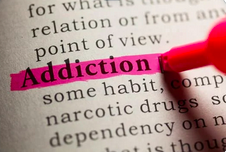
For decades, due to misconception and shame, drug use and addiction was often associated with lack of willpower or poor decision making. Although, today, substance use disorders are considered a health condition related to psychological and biological factors as well as genetic disposition, the accompanying stigma unfortunately still exists.
People with substance use disorders are often blamed for their condition all while society portrays those that are suffering as weak or misfits. This stigma can have fatal consequences. It can prevent someone from seeking the appropriate help or even turn to suicide.
Efforts to reduce stigma should begin with spreading knowledge about the disease. Society must open up the conversation about addiction, rather than shunning it away. Healthcare and treatment providers should be trained in caring for those with substance use disorders with dignity and compassion. The science behind addiction must be more widely recognized, including the changes the brain experiences with drug use as well as features that are beyond a person’s control, such as environmental and genetic factors.
As the first steps in reducing the stigmatization of addiction, The Office of National Drug Control Policy recommends changing our language:
Addict Person with substance use disorder
Alcoholic Person with alcohol use disorder
Addict Person with substance use disorder
Alcoholic Person with alcohol use disorder
Drug problem with Substance use disorder
Drug abuse with Drug misuse, harmful use
Drug abuser with Person with substance use disorder
Clean Abstinent, not actively using
Dirty with Actively using
Former addict with Person in recovery
